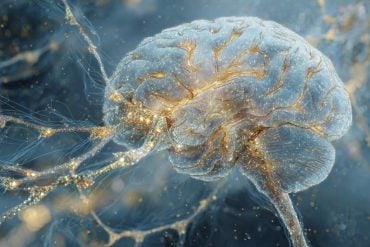Summary: Religious tendencies could contribute to the previously noted connection between morning preference and life satisfaction. Researchers conducted surveys of Polish adults assessing their morning-evening preference, conscientiousness, religiosity, and satisfaction with life.
Findings suggest that morning individuals tend to be more conscientious, religious, and satisfied with life. However, the study did not confirm causal relationships, indicating further research is needed.
Key Facts:
- The research supports previous findings that being a “morning person” and religious is linked to higher life satisfaction.
- This study presents evidence suggesting that higher religiosity among morning-oriented individuals could partially explain their higher life satisfaction.
- The research did not confirm any cause-and-effect relationships and did not account for sociodemographic traits, pointing to the need for further studies.
Source: PLOS
A new analysis suggests that being religious may contribute to a previously established link between preferring to wake up early and having higher life satisfaction, and this relationship may, in turn, be influenced by a person’s level of conscientiousness.
Joanna Gorgol and colleagues at the University of Warsaw, Poland, present these findings in the open-access journal PLOS ONE on May 24.
Around the world, some people prefer to wake up early in the morning, others prefer to stay up late, and many people fall somewhere in between. Prior research has linked being a “morning person” to having higher life satisfaction and to being more conscientious.
Prior research has also uncovered associations between being religious and having higher life satisfaction and conscientiousness, suggesting the possibility that religiosity might contribute to the relationship between being a morning person and having more life satisfaction.

To better understand the interplay between preference for mornings, conscientiousness, religiosity, and life satisfaction, Gorgol and colleagues conducted two survey-based analyses of Polish adults, one with 500 participants and the other with 728 participants.
Both groups completed questionnaires to evaluate their preference for mornings, their life satisfaction, and their level of conscientiousness. One group was asked about their belief in God and the other about their level of religiosity in general.
The survey results reaffirmed that being a morning person is associated with higher conscientiousness and life satisfaction. The results also suggested that being religious is associated with a preference for mornings.
Further analysis suggested that a higher level of religiousness among morning people could at least partially statistically account for the association between morning preference and higher life satisfaction. In turn, that relationship appeared to be statistically affected by conscientiousness.
On the basis of their findings, the researchers speculate that morning people tend to be more conscientious, making them more likely to be religious, and their religiosity may contribute to greater life satisfaction.
Nonetheless, they note that their study did not actually confirm any cause-and-effect relationships and did not account for sociodemographic traits of the participants, so further research will be needed
The authors add: “The association between ‘morningness-eveningness’ and satisfaction with life might stem, at least in part, from higher religiosity among morning-oriented individuals.
“It means that more morning-oriented individuals may benefit from higher psychological wellbeing thanks to both personality characteristics and attitudes toward religion.”
About this psychology and neurotheology research news
Author: Hanna Abdallah
Source: PLOS
Contact: Hanna Abdallah – PLOS
Image: The image is credited to Neuroscience News
Original Research: Open access.
“Godless owls, devout larks: Religiosity and conscientiousness are associated with morning preference and (partly) explain its effects on life satisfaction” by Joanna Gorgol et al. PLOS ONE
Abstract
Godless owls, devout larks: Religiosity and conscientiousness are associated with morning preference and (partly) explain its effects on life satisfaction
The associations between morningness-eveningness, conscientiousness, and religiosity have not been investigated to date. The aim of the present research was to provide evidence for the relationships between these dimensions.
Moreover, we tested whether the well-established link between morningness and life satisfaction could be explained by elevated religiosity of morning-oriented individuals and whether this relationship may be mediated by conscientiousness.
The investigation was conducted on two independent samples of Polish adults (N = 500 and N = 728). Our results corroborated earlier findings that morningness was positively associated with both conscientiousness and satisfaction with life.
We also found evidence for a significant positive association between morningness and religiosity.
Moreover, controlling for age and gender, we obtained significant mediation effects showing that the association between morningness-eveningness and satisfaction with life might stem, at least in part, from the higher religiosity among morning-oriented individuals, also when conscientiousness was included in the model.
It means that more morning-oriented individuals may benefit from higher psychological well-being thanks to both personality characteristics and attitudes towards religion.






